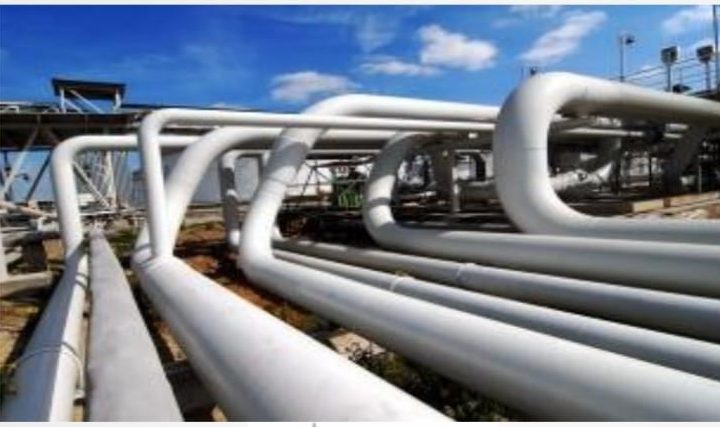Environment expert and Director, Health of Mother Earth Foundation (HOMEF), Nnimmo Bassey, has called for concerted international action to generate and invest at least US $12 billion over 12 years to repair, remediate and restore the environmental and public health damage caused by oil and gas exploration in the Niger Delta.
Bassey made the called in his welcome remarks titled: ‘Ending the Sacrifice’ during the third edition of the Niger Delta Alternatives Convergence (NDAC) held in Abuja on Wednesday, 19 June with the theme “Niger Delta Manifesto, For Socio Ecological Justice.”
Join our WhatsApp ChannelBassey said the call became more urgent today following the findings of the report of the Bayelsa State Oil and Environment Commission titled: ‘An Environmental Genocide – Counting the Human and Environmental Cost of Oil in Bayelsa, Nigeria.’
“The report highlights a per capita oil pollution of 1.5 barrels in the state from thousands of oil spills. It also calls for “concerted international action to generate and invest at least US $12 billion over 12 years to repair, remediate and restore the environmental and public health damage caused by oil and gas and to lay the foundations for Bayelsa’s just transition towards renewable energy and opportunities for alternative livelihoods,” Bassey stated.
Highlighting the title of his remarks, Bassey noted that Niger Delta has undeniably been a “sacrificial zone” that has suffered environmental degradation for not less than seven decades due to oil and gas extraction activities and therefore needs total restoration for the wellbeing of the people.
He said NDAC does not only highlight the huge socioecological challenges of the region but also proposes very clear pathways out of the problem.
“The Convergence notes the extreme negative impacts of oil and gas exploitation in the region as well as the massive deforestation and diverse erosion of both the land and the coastlines.
“We note that while the region is made up of a complex ecosystem of streams, rivers, creeks and the sea, potable water is a rarity due to incessant oil spills and the dumping of hazardous industrial wastes into both surface and ground water.”
He recalled that during the maiden edition of NDAC held in 2022, they produced a Manifesto for socio-ecological justice in the region which was supported by thousands of Nigerians and endorsed by key Niger Delta leaders including, former governor of Akwa Ibom State, Obong Victor Attah, and others.
According to him, the manifesto also highlights the struggles against what he called “reckless pattern of crooked divestment” scheme by the international oil companies (IOCs). “The plans by the international oil companies to sell off their onshore fields to domestic oil companies and either leave Nigeria or move into deep offshore locations has been roundly condemned as a ploy to escape responsibility and accountability for close to 70 years of unbelievably horrendous pollution of the territory through oil spills, hazardous produced water, toxic wastes and gas flaring.”
He added that in order to prevent the kind of divestment promoted by the IOCs, and supported by politicians, the NDAC Manifesto calls a clear policy framework for divestment of IOCs from the oil fields and communities they have exploited since the early 1950s.
“We urge the National Assembly to act on this matter of existential consequences for the people and the territory as the communities cannot afford to be left stranded in the toxic brew bequeathed to them by the oil companies.”
The HOMEF executive director further listed other core demands of the NDAC Manifesto which include “a call for immediate comprehensive environmental and health audits of the entire Niger Delta region with particular alignment to livelihoods, social and economic impacts of crude oil and gas extraction.”
The NDAC manifesto, according to him, also “calls for the remediation and restoration of all impacted territories and for payment of reparations for the damage suffered. We should point out here that even the first oil wells drilled, exploited from the 1950s and abandoned in the 1970s, are still polluting the environment because there has not been a proper abandonment and decommissioning process.”
Bassey lamented that the Niger Delta is indeed “a short-fused time bomb”, pointing out that nothing has been done to address the oil well fires at Ororo-1 in Ondo State that has raged for over four years and the one at Alakiri-9 in Okrika Local Government Area of Rivers State that has been on for five months. These, he said, “epitomize the fact that the time bombs are already exploding.”
The forum, he said, is also demanding “urgent responses to climate change impacts including by setting up mechanisms for emergency response to floods, shoreline protection, restoration of mangrove forests, halting of deforestation, proper urban and rural planning and rejection of false solutions such as geoengineering, Blue Carbon and other carbon upsetting offsets which are tools for carbon slavery and colonialism.
“The Convergence is about people and planet. With the world shifting away from dirty energy, it is of utmost urgency that the Niger Delta region is rid of the scars of that regime and the destitution it has forced on the people.”
READ ALSO: Special Report On Nembe Oil Spill Indicts AITEO, Shell, Others
Also speaking at the event, Chairman of the NDAC, Bubaraye Dakolo, King Ebenanaiwe of Ekpetiama Kingdom, Agada IV, expressed concerns about the impact of oil and gas exploration in the Niger Delta region both on the environment, and social wellbeing of the people.
He equally lamented about the wave of insecurity and militarization of communities in the region because of oil extraction, adding that they have gained noting but absolute squalor and destruction of the environment which has equally spilled over to other places.
“For the last 70 years, the people of the Niger Delta have suffered debt by instalments to the point where if you look at the fabrics of our existence in terms of communities, they’ve been destroyed. Our homes have been militarized. Our homes have been polluted. Our sources of livelihood have been completely removed,” he stated.
The king also criticized the Petroleum Industry Act (PIA) saying it is anti-people aimed at criminalizing everyone in the Niger-Delta.
He said it is wrong to hold a host community including traditional rulers, responsible for any criminal activity around oil installation which even security agencies are unable to track.
“The PIA is an anti-people act, which took 20 years to cook, to miscook from what it was before, to a beautiful nonsense that they passed in 2021, which is aimed at criminalizing everyone in the Niger Delta, including me.”
“Because they say what the JTF, what the military, the trained military experts or trained security experts in Nigeria could not do, I should be held responsible. Someone like me who did not bring out the hydrocarbon from the ground, who did not put a pipeline there, should be held responsible if there is a stoppage of work if there is abduction of any worker around my kingdom. When somebody can come from as far away as Ghana to come and take somebody away nobody will know.”
He explained that the NDAC was designed to rollout strategies for engaging the federal government on issue regarding the impact of oil gas industry on the Niger Delta and what can be done to restore the environment so that the people can live healthy life again.
On his part, Ken Henshaw, executive director of ‘We The People’ presented eight points demands of the NDAC for Niger Delta restoration.
According to Hensaw, part of the NDAC demand is “an immediate and comprehensive audit of entire Niger Delta region,” followed by “a remediation of impacted places, restoration of the human and ecological damages caused by extraction activities and reparations got the irreversible damages our people have had to endure for the last 64 years.”
Also, he demanded that the federal government creates a framework and guidelines that would guide oil companies withdraw from the areas in which they have operated. These, he added, should include a report on the post-hydrocarbon impact assessment that looks at the effects of oil extraction on the environment and livelihoods; a health audit of the people living close to the extraction, and a comprehensive plan with a budget for resolving the effects of extraction on the environment and livelihood.
The NDAC also demanded that the NASS set a firm deadline for gas flaring, that the National Assembly be given the authority to approve gas flaring instead of the commission, and that the section of the PIA that assigns host communities the responsibility of protecting oil installations be removed. The NDAC also called for the National Assembly to review the PIA.
Victor Ezeja is a passionate journalist with seven years of experience writing on economy, politics and energy. He holds a Master's degree in Mass Communication.



















Follow Us